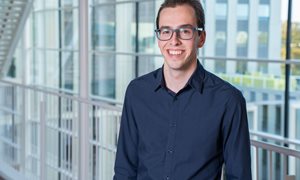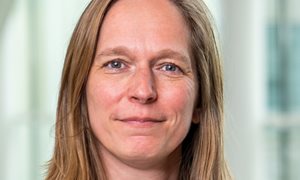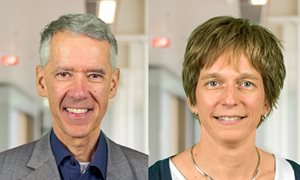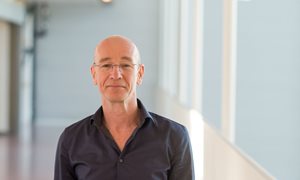18 September 2019
I studied about it because I loved and enjoyed it to become a doctor, especially as a clinician we can met a lot of people and help them, that makes me feel so happy.
Who is your great example as scientists? And please give a motivation why.
My great examples as a scientist are my own professors (Prof Leon Massuger and Prof Rene Verheijen), they are not only very good clinicians, but also good scientists. The combination makes them good medical doctors.
Which research discovery that you have made has made you most proud?
I don’t have any know, but I believe I will in the future.
Given unlimited finance what experiment would you perform?
I really would like to find a cure for cancer.
b) Theater or cinema? : Cinema
c) Dine out or dine in? : Dine in
d) Ferrari or Fiat? : Fiat
e) Shopaholic or chocoholic? : Chocoholic
f) Culture or Nature : Nature

When you were a kid what did you want to be when you grew up? Can you tell us something about your child years.
I always wanted to be a medical doctor. My childhood was awesome, we lived in Surabaya, a big city in East Java. I was born and spent my childhood there. My house was surrounded with beautiful nature, I remember played hide and seek in the little woods with my friends, playing in the rain and searched for crabs in the river at the back of my house.What was your previous academic training, where did you study and why that study?
I was a medical student, specialist in Obstetry and Gynaecology and now subspecialist in Gynaecology Oncology. My Medical School was at Airlangga University in Surabaya ( 1999-2006), I finished my Obstetry and Gynaecology at Indonesia University in Jakarta (2007-2011) and my Gynaecology Oncology was in UMC Utrecht, The Netherlands ( 2016-2018).I studied about it because I loved and enjoyed it to become a doctor, especially as a clinician we can met a lot of people and help them, that makes me feel so happy.
The RIMLS motto is: ‘Today’s molecules for tomorrow’s medicine’. What does this mean for you?
It’s mean that what we do know in the research, will have a big impact for brighter future in medicine.Who is your great example as scientists? And please give a motivation why.
My great examples as a scientist are my own professors (Prof Leon Massuger and Prof Rene Verheijen), they are not only very good clinicians, but also good scientists. The combination makes them good medical doctors.
Which research discovery that you have made has made you most proud?
I don’t have any know, but I believe I will in the future.
Given unlimited finance what experiment would you perform?
I really would like to find a cure for cancer.
What does your working area (desk, office) look like and what does it say about you (or your research)?
My working area should be spacious and neat, because it show how I work and that I can feel comfortable doing my research.What type of person are you, quick insights:
a) Mac or PC? : MACb) Theater or cinema? : Cinema
c) Dine out or dine in? : Dine in
d) Ferrari or Fiat? : Fiat
e) Shopaholic or chocoholic? : Chocoholic
f) Culture or Nature : Nature
Related news items

A collagen plug with shape memory to seal iatrogenic fetal membrane defects after fetoscopic surgery
5 July 2022 Minimally invasive fetoscopic surgery is a rising medical technology to treat the unborn child, however there is an urgent need to reduce the risks introduced by the surgery. The Plugging the Gap project focusses on a new approach to this problem and the first results were recently published. go to page
Willeke Daamen ratified as ETRS board member
3 November 2021 Willeke Daamen, theme Reconstructive and regenerative medicine appointed as board member of The European Tissue Repair Society (ETRS). go to page
Sonlicromanol seems promising for certain cancers Khondrion announces publication in PLOS ONE of new research
13 July 2021 Khondrion announces publication in PLOS ONE of new research showing normalisation of prostate cancer stem cell mPGES-1 overexpression and inhibition of cancer spheroid growth by sonlicromanol’s active metabolite. go to page
Werner Koopman 25 years at Radboudumc celebrating online
8 July 2020Werner Koopman completed his 25 years at Radboudumc. Biochemistry sent him a cake at home and celebrated this special moment during COVID-19 in a unique way.
go to page

